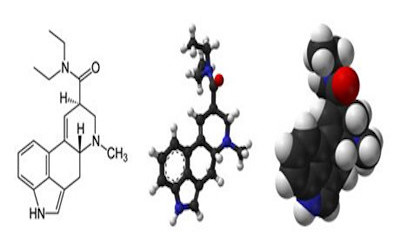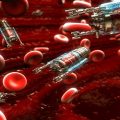PTE考生目前最大的问题之一就是练习题缺乏。除了有限的基本官方书(PLUS,Testbuilder, OG)之外就没有题了。很多英语基础不是很扎实的同学很难找到练习材料。悉尼文波雅思PTE培训学校专门为澳洲,尤其是悉尼、墨尔本的PTE考生准备了适合PTE听力阅读练习的科学60秒。各位PTE同学可以练习PTE听力中的summarise spoken text和PTE口语中的retell lecture,PTE听力口语-科学60秒-Frosty Moss练习记笔记技巧和复述。废话少说,下面开始:
听力内容:
60秒科学节目(SSS)是科学美国人网站的一套广播栏目,英文名称:Scientific American – 60 Second Science,节目内容以科学报道为主,节目仅一分钟的时间,主要对当今的科学技术新发展作以简明、通俗的介绍,对于科学的发展如何影响人们的生活环境、健康状况及科学技术,提供了大量简明易懂的阐释。
This is Scientific American — 60-Second Science. I’m Christopher Intagliata.
LSD is one of the most potent hallucinogenic drugs—active at just around 100 micrograms…a miniscule amount. That fact has fascinated pharmacologists for decades. Namely, how can it have such long-lasting effects…12 hours or more…at such tiny doses?
To find out, researchers legally obtained LSD. And built copies of the receptors it binds to in the brain—serotonin receptors. They mixed the LSD and the receptors together, and crystallized the result. They then imaged the structure, using x-ray crystallography.
And they found that when LSD linked up with the serotonin receptor, a sort of “lid” formed over it. Almost like the drug went in, then pulled the door shut behind it. “You could think of the top part of LSD as a hand, holding onto the latch and pulling it down.” Bryan Roth, a pharmacologist at University of North Carolina in Chapel Hill involved in the research.
“This explains why LSD is so potent, why such a small amount of it is active, and secondly why it lasts for such a long period of time. Because basically once it gets in there it takes hours to come off the receptor.” The study is in the journal Cell.
The result may also explain why microdosing—taking even smaller amounts of LSD, at sub-psychedelic levels—might work as a mood enhancer, as some users have reported. “It’s clear from the data we have that these small doses can engage these receptors, and of course we know that the receptors that LSD interacts with, they’re the same receptors that are thought to be involved in antidepressant drug action.”
Roth does not advocate trying it out. But he says the discovery of the “lid” might someday lead to the development of novel antidepressants—ones with long-lasting effects, at just the tiniest of doses.
Thanks for listening for Scientific American — 60-Second Science Science. I’m Christopher Intagliata.
墨尔本悉尼文波PTE原创首发
更多精彩请持续关注微信wenbo_tv3。





